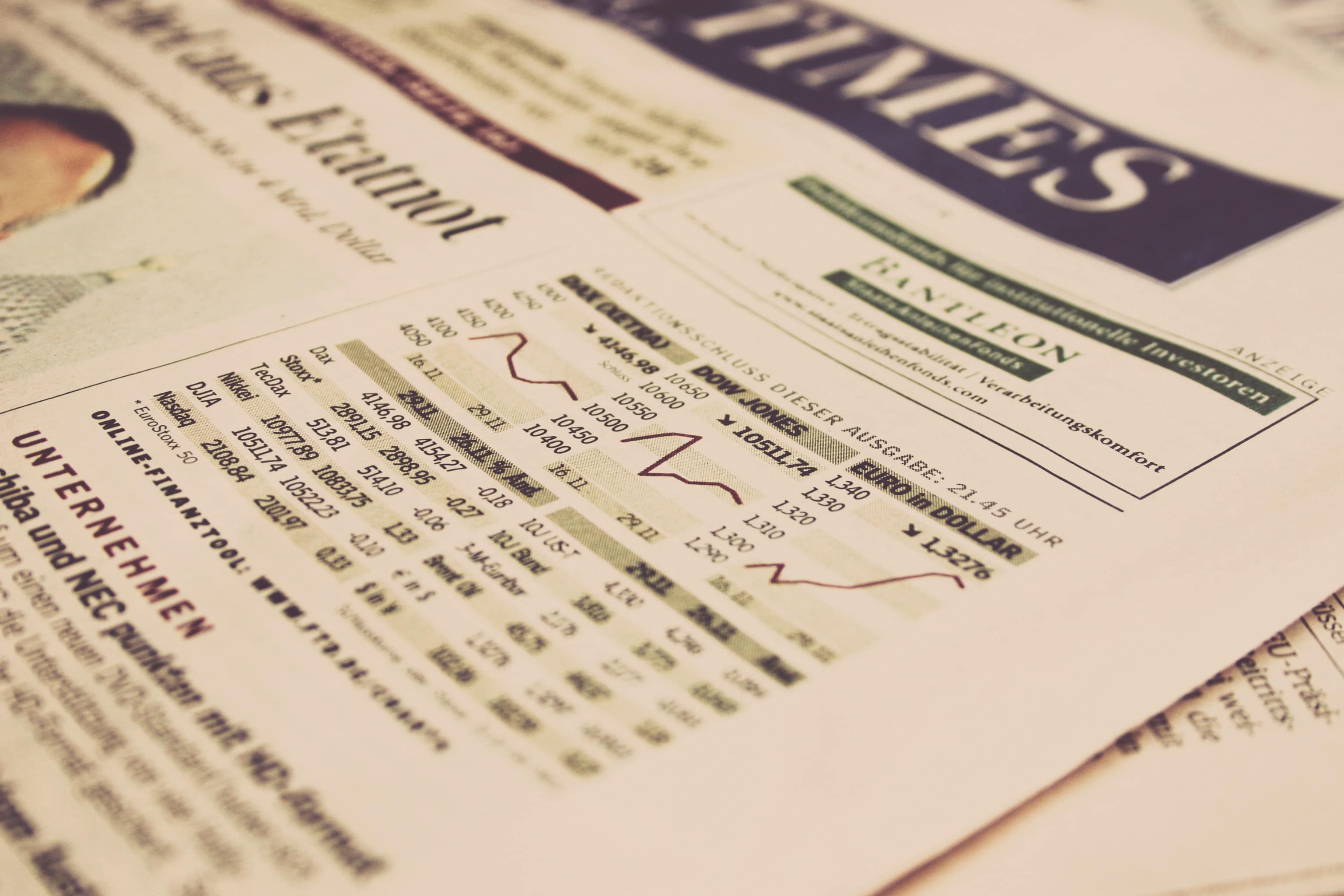You hear it all the time – buy low, sell high. But what does that mean exactly? How do you know if the market is high or low? The stock market is a fickle beast and market timing, though easy to define, is almost impossible to do.
Speaking of fickle beasts, there are bull markets, bear markets, and constant market corrections, but knowing when any of them is coming is a fool’s errand. The market moves like the wind and even your financial advisor has no idea the next turn it will take.
Definitions

Market Timing: This is the practice of buying or selling investments based on a perception of where the market for either the investment or the market as a whole is heading.
The goal of the market timer is to buy an investment when they predict that the investment will increase in value and sell the investment before they think it will go down.
Bear Market: A period when the market trends downward. Generally, you want to sell stocks or other investments just before it or just stay out of the market until it passes. More advanced traders may want to take this time to do some short-selling.
The term “bear market” actually comes from an old proverb saying it’s unwise to “sell the skin of a bear before you catch it,” which evolved to describe short-selling as anticipating the market will go down.
Bull Market: A period when the market is experiencing an uptrend and stock prices are rising. If you are using a market timing strategy, this is a time when the average investor either wants to buy stocks or other investments just prior so they can harvest gains at the end.
As far as the origins of the term “bull market,” it’s thought that it was just a bestial foil to the term “bear market.” I think the bestial foil is Reynolds.
Market Correction: The technical term is when an investment such as a stock, mutual fund, or even entire financial markets fall by 10% or more from a recent peak. However, people use it to describe any time that there is any significant drop in a stock price that may have been overvalued.
Why Do People Try to Time the Market?
Everyone’s Looking for an Edge
No one wants to be average.
I remember when I used to answer random personal finance questions on Yahoo Answers for fun (Alex, I’ll take “What dateless finance nerds do on Friday nights” for $200, please), the single most common question was “How do I make a lot of money fast?”
Not surprisingly, most of the (facetious) answers would make a sailor blush.
The truth is if there were a right answer to that question, wouldn’t everyone already be doing it?
Much less would they be on Yahoo Answers educating you on their investment strategy?
If they did, it would quickly become the “new normal” and inflation would skyrocket, after which everyone would be back in the same boat.
Bold Predictors Grab Attention
My wife tells me I have a special skill. I make brash statements with a lot of confidence, even though a lot of the time I’m full of it (except she uses a word that rhymes with “it”). The key to doing this is to almost believe it yourself.
This is exactly what the talking heads on those finance shows do. Why?
Because no one wants to listen to someone hem and haw their way through a bunch of “maybes” and “ifs.” And if they have one right pick every once in a while, no one remembers the bad picks.
But if you objectively look at their track record and filter out the yelling, waving hands, and sound effects, you’ll see that they were wrong more than they were right.
And think about it, if they’re so good at predicting price movements, why would they need a TV show or sell you their trading strategies newsletter?
People Attribute Luck to Skill

Fantasy football has a lot in common with picking individual stocks. You start by picking the ones you value the most. Most of your transactions are done on a computer or phone. You follow your team like a person obsessed. And it’s almost all entirely luck.
And do you know who are some of the worst fantasy football players? Actual NFL football players. You’d think they have some sort of insider information that would give them an edge, but they depend on the same luck you do.
This is why most professional stockbrokers who follow actual technical indicators don’t do any better than boring old index funds.
Following moving averages and portfolio management theories don’t hold a candle to set-and-forget or buy-and-hold.
There’s a saying that it’s “better to be lucky than good.” This is because skill generally can only take you so far, but with the right circumstance, your potential is limitless.
History is replete with people who are considered to be geniuses for their accomplishments when many times it can be attributed to dumb old luck.
Get our best strategies, tools, and support sent straight to your inbox.
Why You Shouldn’t Try to Time the Market
You’re Not Special
Now I don’t mean this to contradict what your grade school teacher told you. We’re all special in our own way… blah, blah, blah. But for every Warren Buffet, there are a thousand Stanley Milfords.
Who’s Stanley Milford? Exactly.
You only hear about the exceptional cases and think that you can be one of them. Chances are you won’t. But that shouldn’t be your goal. In this case, doing well enough is okay.
Every Edge is Already Baked In
Here’s another term for you: Efficient Market Hypothesis. This is the thought that investment prices already reflect all available information. As such it is exceedingly difficult to have a piece of information that will allow you to have an edge over someone else.
Think that meatless meat is going to be the next “sliced bread?” I’m willing to bet only about 457,274 other people already thought about that sandwich and have already made stock trades based on it.
There are literally tens of thousands of people whose actual full-time job is to think about this very thing.
Do you know how to win a “guess the weight of this cow” contest? Gather everyone else’s guesses and take the average as your guess.
The statistician Francis Galston demonstrated this very thing a hundred years ago. Today this is called “the Wisdom of Crowds” and it’s why “hot stock tips” are mythical.
You’re a Cheetah
No, it’s not because you love crunchy cheese curls so much. It’s for an illustration. In this analogy you are the predator and the stock market is an antelope.
Cheetahs are the fastest land animals on earth. But then why are they only successful on about 50% of their hunts? This is because antelopes don’t have to be faster.
They dictate the terms of the chase because they have the advantage of unpredictability. They survive by turning quickly at the last second.
The stock market has the same advantage. You’re just the cheetah guessing which way it will turn. Plus, you’re not even the fastest cat on the savanna.
High-frequency trading computers make hundreds of small trades in milliseconds. You may as well be standing still.
Also, think about it. If Cheetahs were successful on 100% of their antelope hunts, antelopes would quickly go extinct and Wall Street wouldn’t be the only place with a bunch of fat cats.
But the same is true for the stock market. For everyone who buys a winner, there has to be someone who sold a loser. If everyone was right 100% of the time, the market would be meaningless.
What You Should Do Instead
So if timing the market is not the way to go, what should you do? And what about the upcoming recession that everyone is talking about?
Well, there’s absolutely no way of guaranteeing success. Risk and reward go hand-in-hand. But there are things you can do to hedge your bets.
Look at Long-Term Over Short-Term
When I was learning to drive, my driver’s ed teacher (Hey Coach Lassiter!) gave me some sage advice. He noticed on big turns in the road, I was making too many steering corrections.
He told me to stop looking at the part of the turn that’s right in front of the car and instead look more toward the horizon and my peripheral vision would handle the turn. He was right.
If you look at the short-term fluctuations in the market on a day-to-day basis, you’re going to drive yourself crazy. And emotional decisions generally turn out to be wrong decisions.
An Illustration
Look at these two charts and tell me which stock you’d rather own:

Well, November Fools! It’s the same stock, just on different time scales. They’re both Starbucks charts. The one on the left is from the last six months. On the right is from the last ten years.
The one on the left makes it look like the company is in serious trouble (which it might be), but if something like that happened 10 years ago and it made you sell all your shares, you would have missed out on about 800% in gains.
Over 40 years that would turn a single $1000 investment into over $4 million.
Now you may be saying to yourself, yeah, but I never would have sold my shares of Starbucks 10 years ago.
But if you remember, that was when Starbucks expanded too quickly and were forced to close down over 600 under-performing stores. And some pundits were afraid that they were done.
It just goes to show you that in the short-term stock prices mean almost nothing for your average individual investor whose default mode should be a buy-and-hold strategy.
Time in the market is more important than timing the market.
Tweet ThisDiversify
Market timing means a lot less if you can minimize variation. You minimize variation by owning a wide range of assets.
Think about it. If your portfolio as a whole doesn’t have wild swings, you negate the need to time the market to make a profit.
Granted, the growth is slow and steady, but even on a moderate growth rate, compounding interest is still a miracle.
You can do this yourself by buying investments from multiple asset classes and a variety of categories within those classes. Or you can just get an S&P 500 index fund or a total market fund and be done with it.
Dollar-Cost Averaging
This is where instead of investing all your money at one time, you spread out your investing over a period of time. This reduces your risk of buying at the perfectly wrong time, like right before a severe market downturn.
This actually turns a bear market to your favor because as the price of an investment is dropping, you can buy more shares of it. So when the market turns back around, you’ll have more shares benefiting from the growth.
Another intangible benefit of this strategy is that it could encourage those who are a bit timid to enter the market to take small steps before diving in. So in a way, dollar cost averaging is the “gateway drug” to…
Lump-Sum Investing
Remember how dollar-cost averaging is great for bear markets? Well, if you’re on the cusp of a major bull market, you’re going to want to put it all in at once.
Think of the U.S. stock market like a meandering river, and you’re on a canoe. There are areas of the river that are quick and areas that are virtually still.
There are even some rivers that curve back. But they always wind up taking you downstream. And the longer you stay out of the water, the less overall progress you’re making.
And even if you get in at the worst possible time, as long as you stay in, chances are you’ll make back what you “lost” and then some before too long.
This is because bull markets almost always tend to be longer and stronger.
Want to see a great visual? Take a look at this graphic from Investopedia of the performance of the S&P 500 during each of the bull (green) and bear (red) markets since 1956.
Be Contrarian
Like Mary and her garden of silver bells and cockle shells, it pays to be a bit contrarian. This means doing the opposite of what the crowd is doing. Earlier I spoke of the “wisdom of crowds” and how that keeps you from getting an edge. How is this different?
It’s indeed hard to get an edge because of crowds, but opportunities lie in the inertia of crowds. This is because others are trying to time the market and are reactionary. The problem is most people tend to over-react. This is how bubbles form.
Back in the early 2000’s, everyone thought that there was no way to lose money in real estate. So people took out ridiculous loans and drove housing prices sky-high for fear of missing out.
They were reacting to a time in the market when housing was the way to get rich. Then the bottom fell out.
Warren Buffet is attributed to the very famous quote, “Be fearful when others are greedy and greedy when others are fearful.” This is the contrarian mantra.
If you followed this advice in 2007 and sold your house when everyone was buying and then in 2009 bought your house (or two with the price you got for your house in 2007!) when everyone was walking away from theirs, you’d be retired by now.
This is the only semi-valid way to “time the market” in my opinion. A word of caution, however. I said it pays to be a bit contrarian, not dogmatically. You need to be able to tell when it’s all hype and when it’s actual sea-change, which is a challenge.
No One Knows the Future
Who knows if index funds are the next bubble or if a fundamental philosophy in governing is in store for the U.S.
The safer bet is to get in and stay in. But even that is not guaranteed.
Is there a recession on the horizon or has the aggressive Fed interest rate policies negated the predictive effects of the yield curve inversion? No one truly knows and thus no one should try to time the market. Many have tried. Most have failed.


